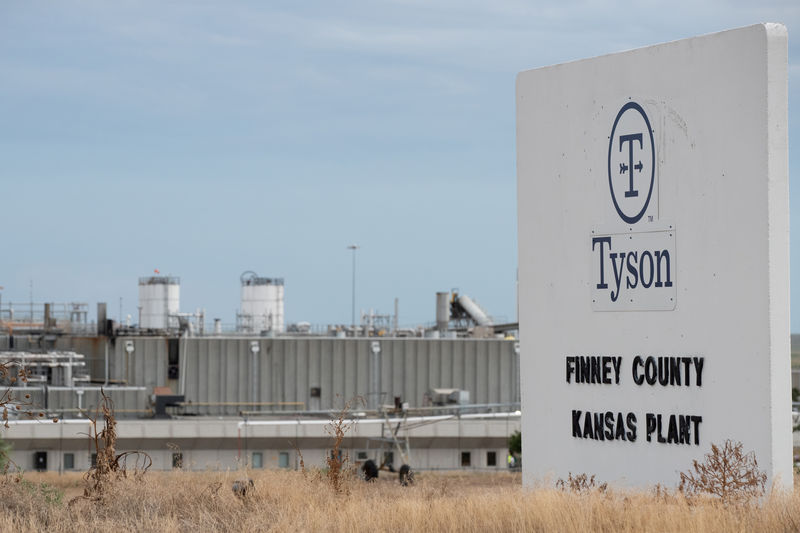By Tom Polansek
CHICAGO (Reuters) - U.S. pork prices rose in recent weeks at a time when they would normally be falling, as a fatal pig disease in China is tightening global meat supplies, the chief executive of Tyson Foods Inc (NYSE:TSN) said on Tuesday.
The price increase is probably the first time African swine fever (ASF) has significantly affected the United States, CEO Noel White said, after the company posted lower-than-expected quarterly earnings.
The increase is "extremely unusual," White told analysts on a conference call, because prices usually drop in the autumn. The United States also has more hogs than ever. Processors are slaughtering about 2.7 million pigs per week, up from about 2.6 million a year ago.
But African swine fever is reshaping global meat markets and China is scouring the world to replace millions of its pigs killed by the disease.
Higher U.S. pork prices could benefit meatpackers like Arkansas-based Tyson, though they were overshadowed in the company's latest earnings by an August fire at a U.S. beef plant. Reduced international supplies are also expected to help Tyson rivals like Seaboard Corp, JBS USA and WH Group's Smithfield Foods.
"Since the product is being produced for export today, we are seeing product prices move higher," White said.
Tyson shares climbed more than 6% after his comments.
"We urge investors to buy here before the impact of ASF is felt," Bernstein analysts said in a note.
African swine fever has killed up to half of China's hog herd since August 2018 and lifted Chinese pork prices to record highs. Vietnam, the Philippines and other nations are also struggling with outbreaks.
U.S. processors face a disadvantage for sales to China, compared with other suppliers, because Beijing imposed steep tariffs on U.S. pork as part of the countries' trade war. Still, Chinese prices are so high that importers are willing to pay the tariff, affecting the U.S. market.
From January to September, U.S. pork exports to China and Hong Kong were up 47% in volume from a year earlier. Chicago Mercantile Exchange December lean hog futures have risen about 12% since hitting a one-year low in September.
"China has already taken a lot of product," said Steve Meyer, economist for Kerns and Associates. "They're going to take more and more."
Tyson fell short of Wall Street estimates for quarterly revenue and profit, after the slaughterhouse fire hurt sales volumes in its beef business, the company's biggest segment.
Excluding items, the company earned $1.21 per share, compared with the average analyst estimate of $1.29, according to IBES data from Refinitiv. Total sales rose nearly 9% to $10.88 billion on strength in its pork and chicken segments, but missed the average estimate of $11 billion.
